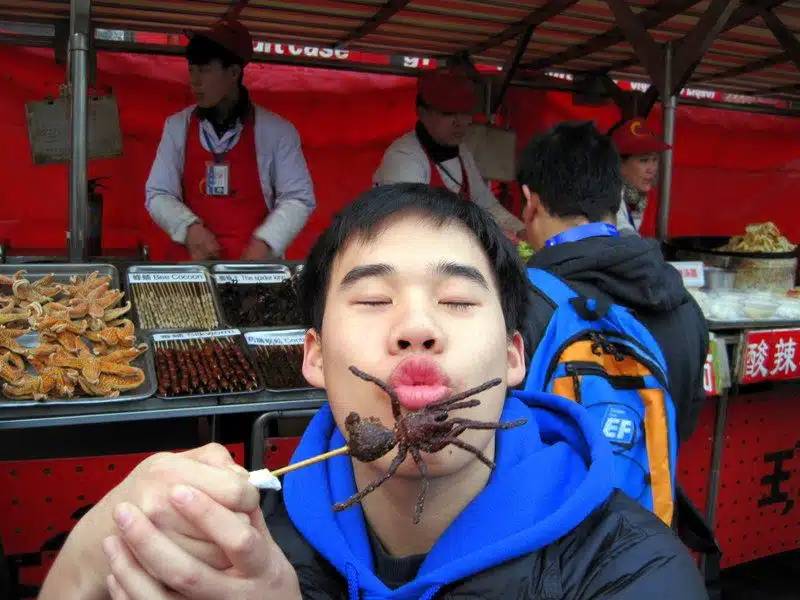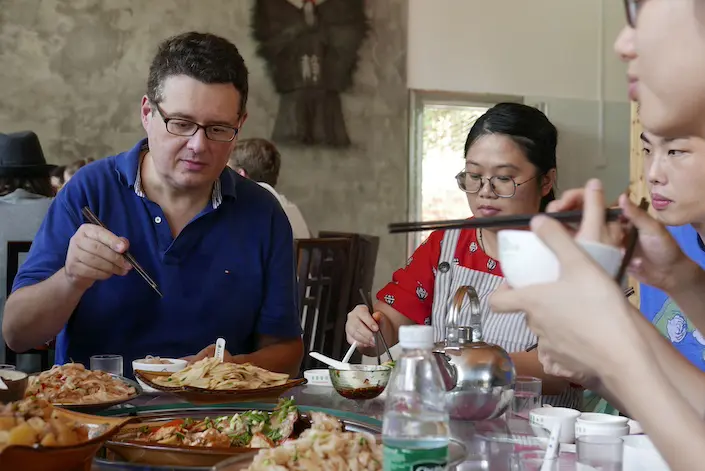20 Good Facts To China Flavorful Food Culture
20 Good Facts To China Flavorful Food Culture
Blog Article
Top 10 Tips To Shop In China Regional Particularties
1. Do your research before you go. Tip Know what each region can offer. Suzhou is one example. It is known for its silk, Jingdezhen is famous for its porcelain, and Tibet, for its thangkas.Pro: It will help you focus your shopping efforts and avoid spending time.Con: The preparation and knowledge of the regional highlights is essential.
2. Buy Locally to Ensure the authenticityTip: Purchase items directly from the point of origin to ensure quality and authenticity.Pros: Reduces the risk that copyright goods will be sold, and helps local artists.Pro: It may require traveling to rural or less touristy regions.
3. Visit the Workshops or ArtistsPick small workshops or hubs for artisanal over general stores.Pro: Gives you a better understanding of the art and assures you're buying directly from creators.Con: Products created by hand can be expensive and difficult to bargain.
4. The significance of language in the cultural contextLearn about the cultural background of such items like jade carvings and calligraphy scrolls.Pro: Makes you appreciate the product and gives them more meaning.Con: It could take a while to fully grasp the cultural differences.
5. Make sure you are checking the quality with care.To make sure you're satisfied with the quality of the product, check to see if items such as tea, ceramics or embroidery conform to your expectations.Pro: It will keep you from disappointment as you'll receive exactly what you pay.Pro: It takes expertise or guidance to locate the best quality products.
6. Beware of products that are mass-produced.Check out unique, handmade objects in contrast to mass-produced copies.Pro: Ensures that you bring home a valuable and really special souvenir.Con: The cost of authentic craftsmanship may be costly and difficult to find.
7. Compare PricesCheck several stores or stalls in order to compare prices on the exact same product.Pro: It can help you to identify reasonable costs and help you avoid overcharging.Con: Time-consuming, especially for large markets.
8. Purchase Tea from Reliable VendorsTip Tips: Go to teahouses in Hangzhou and Fujian for Longjing tea (Dragon Well tea) or Tieguanyin.Pro: It ensures quality and authenticity.Con: Tea of high-quality can be expensive and hard to verify for newcomers.
9. Understand Local CustomsCertain sellers require you to haggle or consider it part of the shopping experience.Pro: Provides a stimulating culture to shopping.Con: Not knowing the customs can result in awkward interactions.
10. Pack smartlyPrepare for the transport of fragile and bulky objects like silk, ceramics, or other regional specialties.Pro: This service ensures that your items arrive with no damage.Cons: Can increase logistical problems and cost to shipping.
Pros of shopping for regional SpecialtiesUnique Souvenirs. Specialties from the region offer unique products that are not available anywhere else.Cultural Immersion - Shopping locally for items connects you to the area's heritage, craftsmanship and culture.Support for artisans Direct purchases from artisans benefit local economies.Pros and cons of shopping for local specialty foodsSecurity: There is a risk of purchasing counterfeits or inferior quality versions.Moving fragile, heavy or bulky items may prove difficult.Prices that are higher: Handmade products particularly they can be quite expensive.By following these tips, you can shop confidently for the best local dishes, and ensure memorable and meaningful purchases from your visit to China. Have a look at the top rated discover hidden food gems in China for site advice including explore China riCh food history, savor the flavors of China, culinary experiences across China, explore diverse Chinese dishes, China culinary heritage, explore diverse Chinese dishes, discover China culinary delights, Chinese food you must try, discover China culinary delights, China flavorful food culture and more.
Top 10 Tips For Dining Etiquette & Manners In China
1. Tip Be patient and wait for your host or server to show you to your seating arrangement.Pro: Respects the host's authority and respects their position.Con: Inconsistent settings could cause confusion because it is difficult to determine who the host of the event is.
2. Make sure you use chopsticks correctlyIt is best not to stick chopsticks into the rice upright and it appears like a funeral ceremony. Use the chopstick holder or place them flatly on a platter or bowl when they are you aren't using them.Pro: Prevents accidental irresponsibility.Con: Learning proper chopstick etiquette might take practice for beginners.
3. Respect eldersAs a suggestion As a suggestion, allow the oldest or senior person take the first seat. It is also common to serve them first.Pro: Maintains the values of family and social hierarchies.Con: This practice could be ignored or in informal settings.
4. Share DishesChinese food is enjoyed by everyone. The dishes are served in the center of the table to everyone's enjoyment. Only take the last portion in the event that it is served.Pro: Helps to create the feeling of sharing and creates a sense of community.Cons: Sharing can restrict your choices if you are a picky eater.
5. Avoid Wasting FoodTip: Eat only what you need. If you don't leave food on your plate you could be seen as a waste and inconsiderate.Pro: Shows appreciation for the host's efforts.Cons: You might struggle to finish if you overestimate your appetite.
6. Toast ProperlyIt is a good idea to be respectful by lowering your glass a little lower than that of more senior or respected people.Pro shows politeness and understanding of cultural hierarchy.Con: May be awkward to remember in a big group with multiple toasts.
7. Don't re-flip fishTip A word of caution: In southern China, flipping an entire fish after eating just one side is considered bad luck. It is a symbol of a capsized boat.Pro: You will not be infringing local superstitions.Cons Cons: In northern China, this custom may not be appropriate, resulting in mixed practices.
8. Slurping and Burping is OKSlurping noodles or soup isn't considered to be rude. It's an indication that you're having fun. The practice of slurping can also be accepted as a compliment to the chef.Pro: It helps you relax and enjoy your meal.Con: You may feel uneasy because this is not in line with your norms of culture.
9. Chopsticks are not to be used as a point reference.Tip A word of caution: It's considered rude use chopsticks to gesture or to point them. Use them only for eating.Pros: It keeps the dining experience respectful.Con: It's extremely easy to forget about this rule in lively conversations.
10. You must pay attention to the Bill PayerIn China the custom is for hosts to demand that the guest pay the amount. It is possible to offer, however there is a chance of resistance.Pro: Shows your appreciation to the hostess's generosity.Pro: Relying on something too much could seem unsincere.
Benefits of Observing the Dining Etiquette in ChinaCultural Respect: Adhering the customs of locals promotes goodwill.Social Bonding: Keeping customs can bring about a sense of connection and appreciation.Avoids Missteps: Proper etiquette helps you navigate unfamiliar dining situations smoothly.The authentic experience: Authentic experiences enhance the overall experience.Pros and Cons of Following China Dining EtiquetteComplex Rules: The abundance of customs may feel overwhelming for newcomers.Regional Variations: Etiquette norms can differ between regions, causing potential confusion.The formalities could take a a lot of time.Unfamiliar gestures: Certain actions such as correctly using chopsticks requires practice and effort.If you keep these guidelines with these in mind, you'll be in a position to master Chinese dining habits with ease and create an enjoyable and enjoyable experience for your guests and yourself. View the best the ultimate guide to Chinese cuisine for site recommendations including top Chinese food experiences, discover China regional dishes, discover China culinary delights, a taste of China best local foods, explore diverse Chinese dishes, China culinary heritage, culinary wonders of China, a taste of China best local foods, China flavorful food culture, culinary tours of China best cities and more.